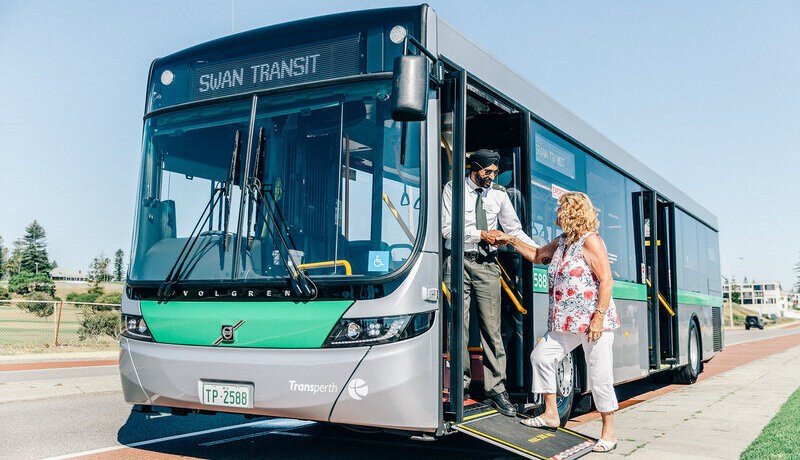The FTA’s Van Excellence on Controlling Fuel Spend
With more than 3.2 million vans and light commercial vehicles in the UK – a figure which has grown by 40 per cent in the last decade – they currently represent 1 in 10 vehicles on our roads. The Fleet Transport Association (FTA) has developed Vanfta, recognizing the importance of vans and their drivers, and with the Van Excellence Code is bringing positive help and advice to their members wishing to raise the standards of their operation and be acknowledged for so doing. We at GreenRoad are incredibly proud of the strategic partnership we have with the FTA’s Van Excellence program.
The FTA’s August Essential Briefing for Van Operators included a particularly informative piece from Mark Cartwright on controlling fuel spend, as follows:
Diesel prices have increased by over five per cent since this time last year. Fuel now represents over 70 per cent of the running costs for the average van on the UK roads. A typical van will use over £7,000 worth of fuel each year.
Frightening figures!
Despite this massive burden many operators fail to take on board straightforward measures to reduce this cost to their business; a cost straight off that organization’s bottom line!
A recent survey of FTA’s van operating members revealed that almost half didn’t measure fuel consumption across their van fleet, only a quarter planned their routes and a third didn’t train their drivers in fuel efficient driving.
So what can operators do to improve their performance? The overwhelming response from operators was around the application of a number of common sense measures. The starting point must be to establish the current mpgs within the fleet and with most respondents using fuel card and bunkering systems to buy their fuel this should be a relatively uncomplicated task. Simply comparing the figures across similar vehicles and drivers can quickly highlight areas for attention!
Driver training is seen as having a positive effect on fuel spend although a degree of variability is noted with some drivers seeming to respond better – possibly because they were starting from a lower standard – and there often being a tail-off in improvement over the next few months.
How can that tail-off be controlled? The consensus is that continued measurement of driver performance is vital. Clearly telematics has a role to play, as has simple mpg calculations, but the key is to ensure drivers are aware of the impact of their driving habits. A straightforward league table of driver performance is cited by many operators as being very successful in ensuring drivers continue to use the skills gained during efficiency training with peer pressure providing a strong incentive.
Technology also has a strong role to play in controlling fuel spend. A major fleet operator has realised over 10 per cent savings simply by investing in off-the-shelf satnavs and instructing their drivers to plan their routes and to use the built-in fuel price function to identify the cheapest fuel within three miles when they need to fill-up.
The use of speed limiters was also seen as vital. Aside from the legal issues, a van travelling at 80mph can use 25 per cent more fuel than at 70mph! Almost two-thirds of respondents regularly use speed limiters on their vans and recognize their use as being a most effective fuel saving measure.
There also seems to be a developing trend towards the adoption of rev limiters (or rev control by ECU remapping) with several operators reporting successful trials. This option appears to be gaining a particular foothold with operators in the utilities and civil engineering sectors where a good proportion of their work is in an urban environment.
The ‘best practice’ message from respondents was that there isn’t a magic bullet to reduce fuel spend. It was the combination of a range of measures which produced real results.
The ability to measure and compare data is a must. Telematics, fleet management systems, fuel card data and spreadsheet calculations all have their role to play.
Driver training will help establish a level playing field across the business.
Ongoing measurement and an open, transparent reporting structure providing direct driver feedback ensures drivers become aware of, and responsible for, their performance. Incentives and awards have a role to play too.
Operators should establish a purchasing policy rather than just leaving it to drivers to fill up where it suits them. Many respondents reported they actively encourage the use of supermarket forecourts by allowing drivers to collect the various incentive points available. This does, of course, need to be balanced against drivers travelling too far in seeking out the cheapest fuel at the expense of added mileage.
Consider the use of speed limiters and, perhaps, rev limiters. Significant fuel savings can be achieved with negligible impact on journey times.
Look at the vehicle itself. Is it properly maintained? Are tyre pressures optimal? Does it need that roof rack? There are many simple checks that operators can make on their vehicles which will save fuel.
Is the vehicle carrying unnecessary weight? Many operators using vehicles as mobile workstations reported they regularly identified those carrying tools and equipment that were rarely used, or had accumulated extra items or supplies over time. Extra weight will impact on economy.
If you’re towing equipment, could that equipment be delivered to site ahead of your workforce? Are you managing vehicle idling time? Only 29 per cent of respondents regularly monitored idling time.
Is that journey necessary? Sounds obvious but a respondent involved in the distribution of retail products realised a reduction of over 10 per cent in mileage simply by calling ahead to ensure the recipient was available and by consolidating deliveries.
The take home message is that there is no magic bullet but there are many, many measures operators should explore. Each may only have a small impact on costs but added together many respondents are reporting 10 to 15 per cent (and beyond) savings.
A quote from Dave Brailsford, the boss of the Great Britain cycling team, caught my eye. He recognizes there is no magic bullet to achieve success and it’s all about ‘the aggregation of marginal gains’; a percentage here and a percentage there…
The same message applies in operators’ quests to reduce and control fuel expenditure.
Background stats from survey
1 Does your organization currently measure fuel consumption/mpg across your van fleet?
| Yes | 54% |
| Partially | 33% |
| No | 17% |
2 How do you purchase fuel? (Note totals greater than 100% due to multiple options)
| General fuelcard | 46% |
| Bunkering | 43% |
| Brand specific fuelcard | 31% |
| Credit/Debit card | 5% |
| Garage account | 3% |
| Cash and reclaim | 3% |
3 Do you plan routes?
| Always | 26% |
| Frequently | 26% |
| Occasionally | 27% |
| Never | 20% |
4 Do you train your drivers in fuel efficient driving?
| Yes | 47% |
| Sometimes | 23% |
| Never | 30% |
5 Do you use …
| Always | often | Sometimes | Rarely | Never | |
| Speed limiters | 35% | 12% | 16% | 4% | 32% |
| Rev limiters | 5% | 2% | 7% | 4% | 81% |
| Telematics | 34% | 9% | 17% | 4% | 36% |
6 Do you monitor idling time?
| Yes | 29% |
| Sometimes | 15% |
| No | 55% |
Van sales
Van registrations saw welcome strong growth in July, according to the latest data from the Society of Motor Manufacturers and Traders (SMMT).
|
Vehicle registrations in June 2012 |
Registrations year to date |
Percentage change on June 2011 |
Annual percentage change year to date |
|
|
Vans |
18,913 |
138,699 |
10.2 |
-7.8 |





